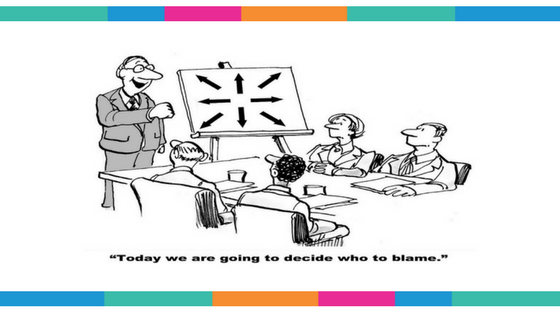“The great thing about the rule book is that it tells me who to blame, once we have hurt or killed someone…”
These words were said to us by a client.
Whenever we face a particularly egregious business or financial scandal, we tend to generate some rules to make sure that “this never happens again”. But, the scandals keep happening. So what’s going on? More often than not, what’s happening is that human beings are taking decisions, which may look strange at a first pass, but are in line with the unwritten rules of behaviour of their particular peer group.
There has for many years been a debate about the merits of rule – as opposed to principle – based accounting. Some accountants prefer rule-based standards arguing that they bring clarity through uniformity. Others would say because they fear being taken to court if people question their judgement. Principle based accounting gives more judgement and flexibility to the accountant, but can make different company’s accounts less easy to compare because of this interpretative element. It’s a difference of approach which can be seen operating across many industries. Are employees to adhere to a strict set of rules which dictate their behaviour, or work to a set of guiding principles which they interpret as they see fit in different circumstances? Is it one or the other or can we have a mix? Do we have a set of tightly drawn rules, which mean that people don’t have to make decisions, or do we trust our people to get it right on the issues that matter and correct error as and when it occurs?
In our experience, people tend to be quite good at taking decisions on behalf of organisations. Limiting their ability to use their skills, judgement and humanity on your behalf is to store up a world of trouble. The recent United Airlines debacle is a case in point. When it’s just rules based operations the danger is that nobody steps back to take stock. A simple question can sometimes help. Try, “Does what we are about to do make sense?” We can think of clients who have made this part of their operating procedure. Try it for yourself with an impending decision. Ask yourself the question. Do you still want to go ahead? If so, great. If you’re unsure how come?
There is an old military adage that no battle plan ever survives first contact with the enemy. Once you have set out the broad principles of what you are trying to achieve, taking decisions from afar with no knowledge of the prevailing conditions on the ground is just pie in the sky. You have trained your people; you need to be sure that they can get on with the job without having to wear a straitjacket at the same time.
And when things do go wrong…what then? Too often organisations try to put distance between themselves and what happened. United outsourced the removal of the passenger to “airport police” who it turns out were not police at all. With Deep Water Horizon BP had sub-contractors. The harsh truth is that whenever you outsource, you outsource your reputation as well. Today, no-one cares who removed Dr Dao from that plane, they just believe that it was United who commissioned, sanctioned and stood by while the removal happened.
United type incidents often generate a huge amount of humour that goes to the heart of what’s wrong. From “Board as a doctor, leave as a patient” to “We put the hospital in hospitality” people have parodied the situation remorselessly. But let’s not forget that humour is a way of telling truths that can have a long reputational afterlife. We still remember a piece of graffiti around an old BA advert which said ‘Lunch in London, Dinner in Denver’ where someone had added ‘Baggage in Boston’. That’s why we think the CNN compilation we reference at the end of this post should be viewed by every Board. (1)
Management teams would do well to ask, how do our people – especially those in the public eye – take everyday decisions? Have we created a culture in which people feel that they have the discretion to act in our best interests? Put another way does that phrase “that’s above my paygrade” ever get used in your organisation. If so, what does that say about your organisational culture?
Asking these softer questions can help you towards a harder bottom line.
If you’re in any doubt about this, just ask United.
(1) https://www.youtube.com/watch?v=E-IZ2blJsDU
Authors: Ian McDermott and Richard Lewis





Leave A Comment